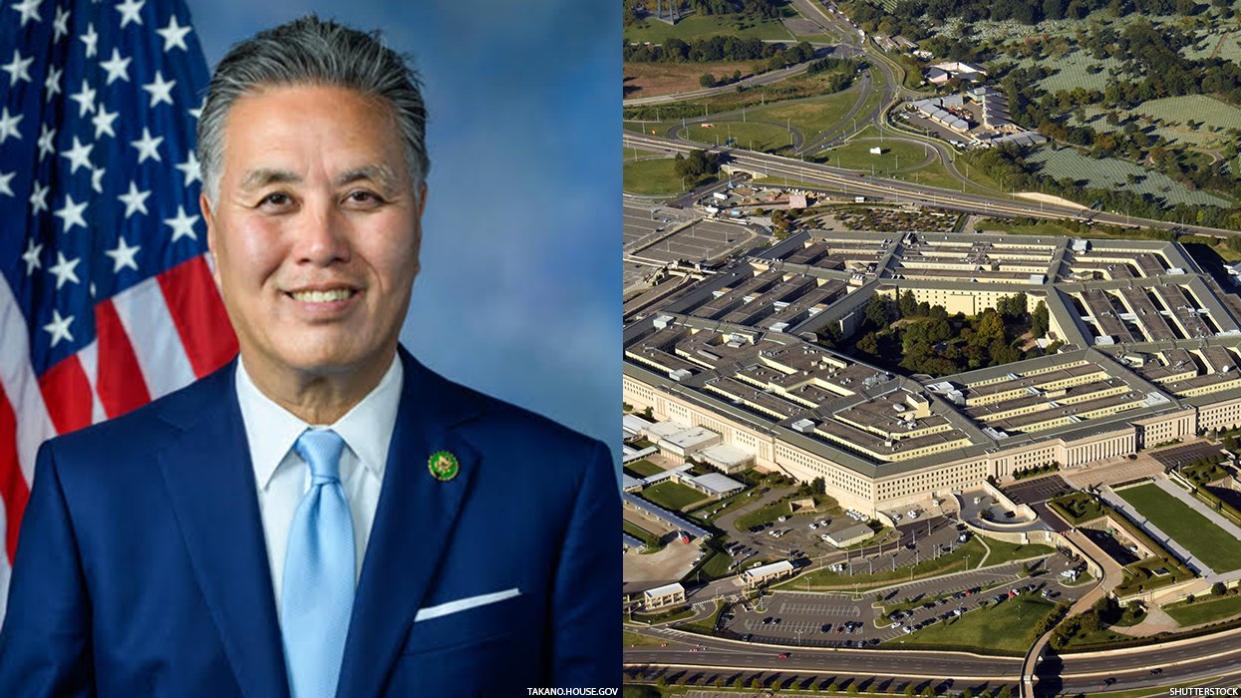Democratic Lawmakers Reintroduce Landmark LGBTQ+ Military Equality Bill

- Oops!Something went wrong.Please try again later.
- Oops!Something went wrong.Please try again later.
On the 12th anniversary of the landmark repeal of “don’t ask, don’t tell,” a policy that banned LGBTQ+ individuals from serving openly in the military, lawmakers took a significant step towards addressing historic discrimination.
Out Rep. Mark Takano of California, Rep. Sara Jacobs of California, and Sen. Richard Blumenthal of Connecticut have reintroduced the Commission on Equity and Reconciliation in the Uniformed Services Act, they announced in a press release on Wednesday.
This legislative move aims to establish a commission investigating discriminatory military policies’ profound and persistent impact on LGBTQ+ servicemembers and veterans.
Takano, an integral proponent of the bill, emphasized the significance of its reintroduction, stating, “We are reintroducing this legislation on the anniversary of the repeal of ‘Don’t Ask, Don’t Tell’ – a reminder that the wounds of our nation’s history of discrimination against LGBTQ+ people are still fresh and require remedy.”
Jacobs echoed the sentiment, highlighting the ongoing need for addressing past injustices, “Our country has yet to make amends for discriminatory policies like ‘Don’t Ask, Don’t Tell’ and the transgender military ban. That’s why I’m proud to co-lead this bicameral legislation that seeks to rectify these historic wrongs, investigate the past and present impact of anti-LGBTQ+ policies, and pave the way for a more inclusive future.”
Blumenthal underscored the urgency of the commission’s work, pointing out that LGBTQ+ servicemembers have faced significant hurdles, “This commission would be an important step to understand the full scope of the harms caused by policies like Don’t Ask, Don’t Tell.”
The bill boasts substantial support, with 10 original cosponsors in the House and Sens. Corey Booker of New Jersey and Jeff Merkley of Oregon cosponsoring in the U.S. Senate. The current landscape includes approximately 250,000 active-duty LGBTQ+ servicemembers and over 1.5 million LGBTQ+ veterans who receive healthcare from the VA. Despite this, there still needs to be comprehensive data collection and educational initiatives focused on these communities.
The Commission on Equity and Reconciliation in the Uniformed Services Act aims to rectify this situation. It will establish a commission tasked with conducting an exhaustive fact-finding investigation, collecting testimonies from servicemembers, veterans, families, advocacy organizations, and government agencies. Subsequently, the commission will present recommendations to Congress, providing a clear pathway to ensure equity for all LGBTQ+ Americans aspiring to serve their country.
Takano emphasized the need to remove barriers for all servicemembers, regardless of their sexual orientation or gender identity, noting, “We must fulfill our promise to honor and respect those who have served.”
This legislation has garnered support from influential organizations, including the Modern Military Association of America, Equality California, Minority Veterans of America, Paralyzed Veterans of America, The American Legion, Disabled American Veterans, Human Rights Campaign, and the San Diego Pride-Military Department.

